Mayor Amarjeet Sohi in his office. Amanda Erickson/The Griff
Amarjeet Sohi talks about addressing student concerns, wins and challenges as mayor
It seems Edmonton is going through some major changes. Ask any MacEwan student and they’ll point to the constant barrage of construction of the new business building and LRT line.
The city is also changing politically. By the time this article comes out, a new mayor and city council will have been elected. Yet, Amarjeet Sohi — a major figure within municipal and federal politics for almost twenty years — isn’t returning.
During his end-of-term interviews, the Griff had the chance to talk to Mmayor Sohi about student needs, challenges, and lessons learned.
“I would say the most important work we have been able to do over the last four years is retain our housing affordability, build more market oriented, as well as affordable homes in Edmonton to keep rents down and mortgage costs down compared to other cities,” Sohi says.
In his four years, Sohi says he proactively reached out and engaged with student associations like SAMU. Along with the Edmonton Youth Council, he says one reason for implementing re-zoning regulations was because of students’ concerns about housing affordability.
“I would say the most important work we have been able to do over the last four years is retain our housing affordability, build more market oriented, as well as affordable homes in Edmonton to keep rents down and mortgage costs down compared to other cities.”
— Amarjeet Sohi, Mayor of Edmonton
Sohi says he heard students want to live in mature neighbourhoods in Edmonton where amenities and services exist but are often priced out, and the re-zoning bylaws allows multi-unit housing to be built in these neighbourhoods.
He also points to the $15 million student housing incentive. A few months ago, Edmonton city council worked with the federal government to initiate the construction of around 500 student housing units to provide students affordable housing close to school, businesses, and transit downtown.
“Another thing is investing in public transit, because we saw our public transit severely underfunded when I got elected, and a lot of students rely on public transit to move around, and it’s the most affordable way to move around instead of driving,” Sohi says.
Sohi was elected mayor in 2021 during the throes of the COVID-19 pandemic, which, aside from inheriting an underfunded public transit system, saw a major decline of transit ridership. Soon after, he requested about $85 million in federal and provincial funding to cover projected transit funding shortfalls for the next two years.
Sohi says the city constructed more bike lanes — both affordable for students who cannot afford to drive and an alternative form of transportation if bus services are unavailable.
However, the increase in bike lanes has been a touchy subject for some, like councillors Karen Principe and Tim Cartmell, both of whom publicly called on the city to pause bike lane construction. It even drew the attention of Alberta’s provincial government.
Devin Dreeshen, Alberta’s transportation minister, expressed his concerns on bike lane construction in Edmonton’s northside on social media. In the post, Dreeshan shared a letter he wrote to councillor Principe.
“I’m asking the City of Edmonton to stop building bike lanes at the expense of driving lanes,” Dreeshen wrote.
Much has been written about Edmonton city council’s strained relationship with the provincial government. While Sohi didn’t share his thoughts on the subject, he did mention financial sustainability in providing good-quality public services as the biggest hurdle during his term.
“Another thing is investing in public transit, because we saw our public transit severely underfunded when I got elected, and a lot of students rely on public transit to move around, and it’s the most affordable way to move around instead of driving.”
— Amarjeet Sohi, Mayor of Edmonton
According to Sohi, municipal governments rely on property taxes and user fees as its main funding sources, and of the total number of taxes Edmontonians pay, only a small percentage goes to the city government.
“Rest of the money goes to the federal and provincial governments, and with those 10 per cents, we are providing 72 services that Edmontonians rely on, and that is not sustainable,” he says.
“That’s why you have seen pressures on property taxes, and that has been an ongoing challenge, but made it worse coming out of COVID, because social pressures on municipalities have definitely gone up, and we don’t have the resources to tackle those social issues, and provincial and federal government has not been investing enough to tackle those.”
Even with those constraints, Sohi mentions the initiatives done within the last four years to improve safety. He says the city has an increased number of transit peace officers to maintain transit safety and an increase in police funding.
“We have the best funded police service now with the highest per capita police officers compared to other Canadian cities,” Sohi adds.

Amanda Erickson/The Griff
The city has funded crisis diversion teams that help connect vulnerable communities to social services and is working with housing providers like NiGiNan Housing Ventures and Jasper Wellness Centre to build more affordable housing for struggling Edmontonians.
Sohi admits that leadership from the provincial and federal governments are necessary to address challenges like houselessness and drug poisonings.
“Those governments have stepped up, but not to the level that the need exists, and that’s where the Mayor’s Office, inside advocacy, is so essential that we have been advocating for those governments to do more,” Sohi says.
As Edmonton’s mayor, Sohi has strived to rebuild and stabilize public services that most students rely on on a regular basis, which municipal governments are responsible for. He says he learned that partnerships are crucial.
“That we got to continue to explore opportunities to partner with [the] federal government and provincial government,” he says. “Also stand up; stand up for the city and demand fairness, demand equity, and continue to push for other orders of government to do more.”
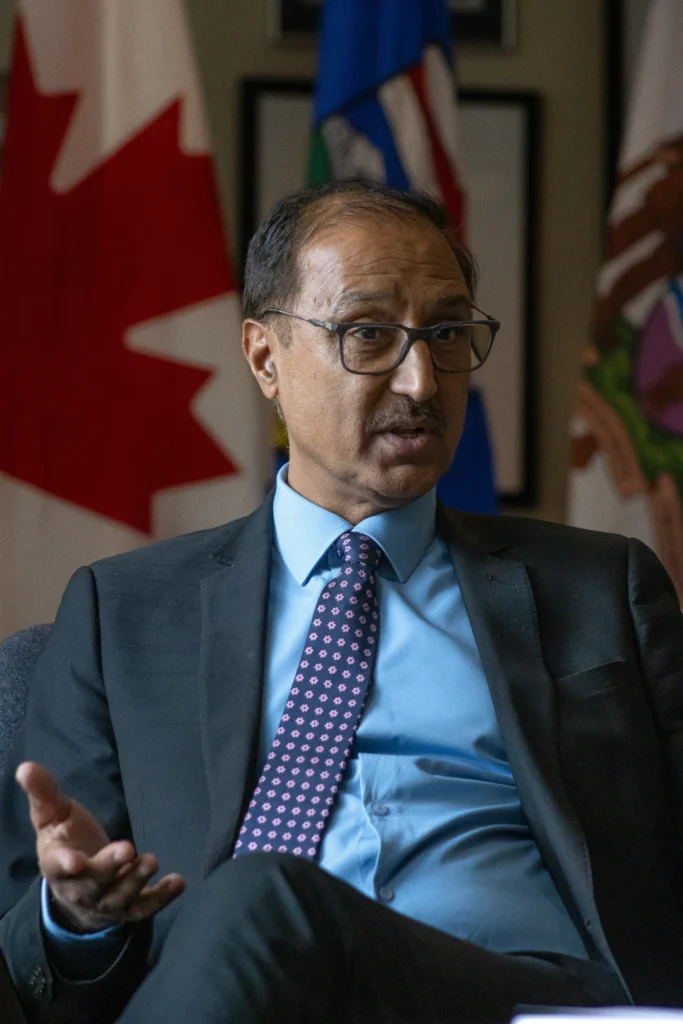

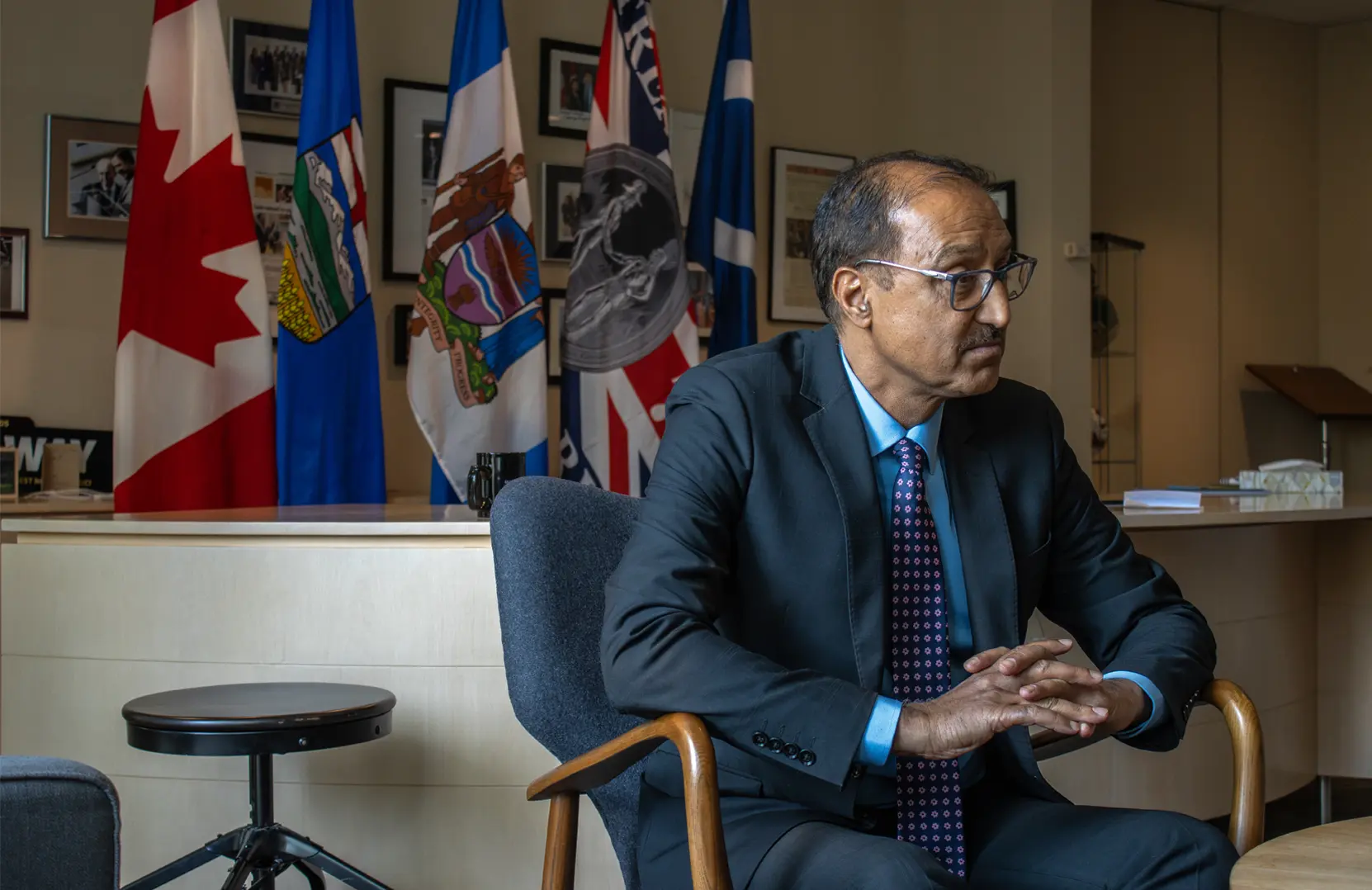
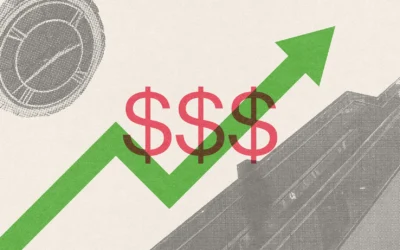
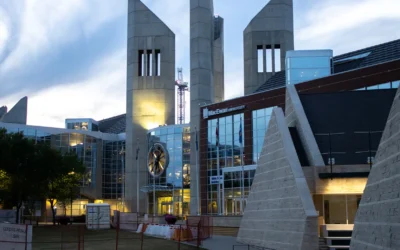
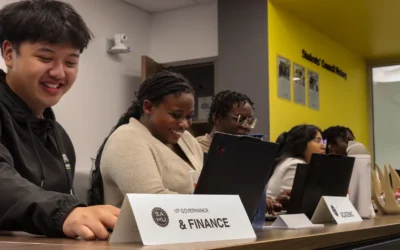
0 Comments